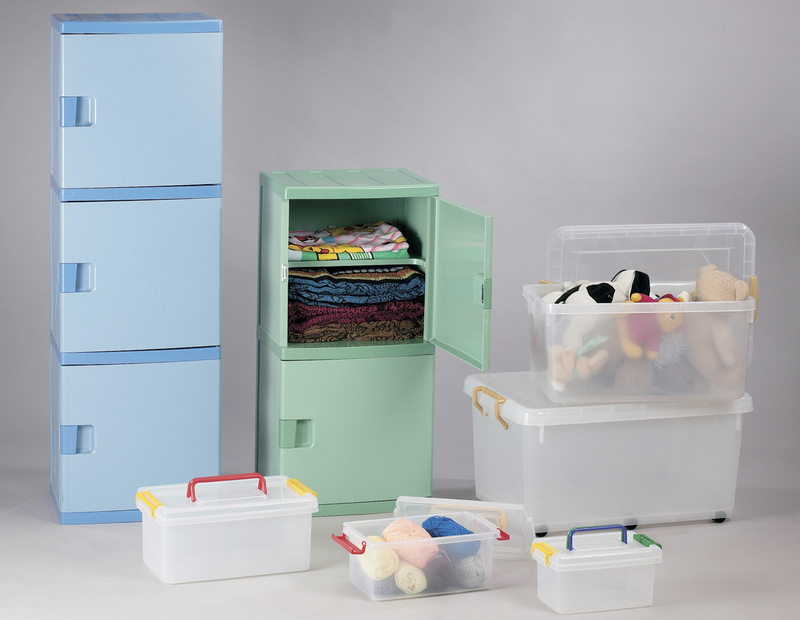A Guide to Protecting Your Sofa from Expert Storage Advisors
Posted on 17/05/2025
A Guide to Protecting Your Sofa from Expert Storage Advisors
Are you preparing to store your favorite couch for a move, renovation, or while decluttering? Keeping your sofa safe during storage is crucial to maintain its appearance, comfort, and longevity. In this comprehensive guide from expert storage advisors, you'll learn essential tips and effective techniques for protecting your sofa in storage. Whether your goal is to avoid dust, prevent pests, or safeguard delicate fabrics, this article has everything you need to know for ultimate peace of mind.
Why Is Sofa Protection Important During Storage?
Sofas and couches are among the most used--and most expensive--items in our homes. Extended storage can expose your sofa to moisture, dirt, pests, and physical damage. Taking the right steps to protect your furniture will help you:
- Save money by preventing costly repairs or premature replacement.
- Preserve sentimental value of heirloom or favorite pieces.
- Maintain a clean, fresh, and presentable look upon retrieval.

Preparing Your Sofa for Storage: Step-by-Step with Expert Storage Advisors
Step 1: Thorough Cleaning
- Vacuum all surfaces - Use upholstery attachments to remove dirt, hair, and debris from cushions, seams, and underneath.
- Spot clean stains - Refer to the manufacturer's instructions for safe cleaning agents suitable for your fabric or leather type.
- Avoid wetting the sofa excessively - Ensure everything is fully dry before moving to storage to prevent mold and mildew.
Step 2: Disassemble, If Possible
Many sofas have removable legs, cushions, or even fold-flat frames. Disassembling your sofa makes it easier to transport, reduces the risk of breakage, and optimizes storage space. Store all hardware and cushions in clearly labelled bags or boxes.
Step 3: Choose the Right Storage Location
Expert storage advisors recommend a climate-controlled environment whenever possible, especially for sofas made from leather, wood, or sensitive fabrics. Excess heat, humidity, or cold can damage materials over extended periods.
- Indoor, climate-controlled storage units are ideal for maintaining consistent temperature and humidity.
- Garages and attics can be risky due to temperature swings and pests.
If using non-climate-controlled storage, pay extra attention to protective coverings and placement away from doors and windows.
Step 4: Use the Right Coverings
Protecting your sofa in storage requires more than a plastic bag. Here's what expert storage advisors suggest:
- Cotton sheets or furniture blankets - These allow air circulation and prevent condensation.
- Plastic wrap with caution - Plastic can trap moisture; if you must use it, create ventilation or use it only on legs or parts contacting the floor.
- Custom sofa covers - Breathable covers designed for storage offer optimal protection against dust and sunlight.
Tip: Avoid using thick tarps or plastic sheeting directly on upholstered surfaces.
Step 5: Correct Positioning in Storage
Don't stack heavy objects on your sofa! Expert storage advisors emphasize the importance of placing couches upright, on feet when possible. This preserves the shape of cushions and frame integrity.
- Keep the sofa off the ground - Use pallets, risers, or blocks to prevent ground moisture or accidental flooding from reaching the base.
- Allow air to circulate all around the piece for proper ventilation.
- Store cushions separately to prevent indentations.
Common Risks to Sofas in Storage (And How to Prevent Them)
1. Moisture, Mold, and Mildew
Moisture is a sofa's worst enemy in storage. Signs of trouble include musty odors, visible mold patches, or brittle, warped cushions.
Prevention Tips:
- Ensure the entire sofa is dry before storage.
- Use moisture-absorbing packets or desiccants.
- Keep the storage unit well-ventilated.
2. Pests and Insects
Mice, moths, and roaches may seek shelter in soft furnishings.
Prevention Tips:
- Choose a facility with a good pest control reputation.
- Seal entry points with weather-stripping and consider pest deterrent sachets (like cedar balls or lavender bags).
- Avoid storing food or scented items with your furniture.
3. Fading and Discoloration
Long-term exposure to light, especially UV, can cause fabric and leather to fade or yellow.
Prevention Tips:
- Cover the sofa properly with UV-resistant materials.
- Store away from windows or sources of sunlight.
4. Physical Damage
Scratches, dents, and rips may occur during transport or while in storage if not adequately protected.
Prevention Tips:
- Wrap all corners and legs in extra padding or bubble wrap.
- Do not stack heavy items on sofa surfaces or side rests.
How to Store Different Sofa Materials Safely
Fabric Sofas
- Use breathable covers, never plastic directly.
- Clean all fabric thoroughly and allow to dry before storage.
- Deodorize with fabric-safe products to prevent musty odors.
Leather Sofas
- Clean and condition the leather before storage.
- Cover with a soft, dry cloth or furniture blankets.
- Never wrap in plastic; leather needs to breathe!
Wood-Framed Sofas
- Polish wood to seal the finish and repel moisture.
- Protect corners and legs with extra padding.
Packing Supplies Recommended by Expert Storage Advisors
Using the right packing supplies is vital for protecting your couch during storage. Here are expert recommendations:
- Furniture moving blankets for wrapping arms, back, and sides.
- Bubble wrap and foam padding for fragile legs or accents.
- Stretch wrap (only on non-fabric sections) to keep loose pieces together.
- Plastic covers (with ventilation holes) for temporary moves.
- Silica gel packets to absorb dampness inside wrapping and under cushions.
- Labels and inventory lists for organizing hardware and cushions.
Expert Storage Advisor Tips for Long-Term Sofa Storage
If your sofa will be in storage for more than a few months, consider these additional steps to ensure its preservation:
- Check storage regularly. Periodic visits let you catch moisture or pest issues early.
- Rotate cushions every few months to prevent flattening or uneven wear.
- Avoid storing other heavy furniture directly on the sofa.
- Leave a slight gap between the sofa and the walls for air circulation.
- Update your inventory with the location and condition of stored items.
The Benefits of Professional Storage Services for Sofa Protection
Sometimes, DIY storage isn't practical--especially for large or delicate couches. Professional storage services offer:
- Climate-controlled environments for optimal humidity and temperature control.
- Skilled movers for careful disassembly, transport, and placement.
- Custom packing and wrapping tailored for your sofa's material and size.
- Security with monitored facilities and robust pest control.
If you have a valuable or antique piece, consider consulting an expert storage advisor before making arrangements.

Frequently Asked Questions About Protecting Sofas in Storage
How do I keep my sofa from getting musty in storage?
Ensure the sofa is dry, use moisture-absorbing products, and store in a well-ventilated, climate-controlled unit. Clean and deodorize fabric before storage.
What is the best way to store a sofa long-term?
Disassemble parts as needed, wrap with breathable material, elevate off the floor, and avoid stacking objects on top. Use a storage unit with consistent temperature and humidity.
How can I avoid pests damaging my sofa?
Choose a reputable, pest-controlled storage facility. Wrap in dust-proof, breathable covers, and use natural pest deterrents inside the storage area.
Conclusion: Protect Your Investment--Store Your Sofa Like an Expert
Your sofa is more than just a seat--it's a significant investment in your home's comfort and style. With advice from expert storage advisors, you can ensure your sofa emerges from storage unscathed, clean, and ready to use. Remember, proper cleaning, covering, climate control, and care are key for every type of couch.
Follow this thorough guide to keep your sofa safe in storage--and enjoy it for years to come.
- Plan ahead and use the right materials for each sofa type.
- Store with professionals if in doubt, especially for valuable items.
- Check periodically to prevent minor issues from becoming big problems.
Your sofa's future comfort starts with smart storage today!
Latest Posts
Expert Advice on Moving Your Bed and Mattress Safely
Embrace Minimalism: Decluttering Tips Before Moving
Efficient Ways to Make House Moving Stress-Free
Long-term Care for Freezers: Proper Non-Usage Storage
Understanding the Intricacies of Piano Moving and Best Practices



